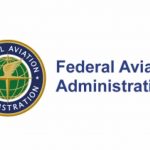Major aviation policy bill sails through the US House
The House passed its bill to reauthorize the Federal Aviation Administration and set aspects of aviation policy with a wide bipartisan majority. Action now turns to the Senate, which has been slower to move its version of a bill.
The House on Thursday overwhelmingly passed a major aviation policy bill after turning back an attempt to expand flights at the airport closest to the U.S. Capitol — but the legislation has a long way to go before it sees President Joe Biden’s desk, and the clock is ticking.
The bill, H.R. 3935 (118), passed the House overwhelmingly, 351-69. It would reauthorize the Federal Aviation Administration with about $103 billion over the next five years as the agency grapples with a crush of passengers returning to the skies in greater numbers than before the pandemic.
Now it’s the Senate’s turn to act, but progress in the upper chamber has been bogged down by a dispute over whether to change a rule setting the minimum number of flight training hours a pilot must have before flying a commercial airplane. Senators had hoped to reschedule a Senate Commerce Committee markup for its version of the bill, S. 1939 (118), this week, but ultimately were not ready.
The FAA’s current authority to operate will expire at the end of September if the bill isn’t enacted beforehand. That timetable is not in Congress’ favor — the bill is competing for floor time with annual appropriations bills, which also are due by the end of September. All of that means it’s likely that an extension for the FAA bill will be needed.
The overwhelmingly bipartisan House vote on the FAA bill is in sharp contrast to last week’s contentious defense bill, which passed by a slim margin on a nearly party-line vote. But months of bipartisan negotiations involving House Transportation Chair Sam Graves (R-Mo.) and ranking member Rick Larsen(D-Wash.) led to a relatively smooth landing for the House’s FAA bill.
In a statement, Larsen called his partnership with Graves a “good faith process” that yielded a bipartisan bill that will improve safety, protect consumers and build on sustainability efforts.
Graves said the bill will address aviation workforce shortages and will maintain the U.S.’ position as “the gold standard in aviation.”
“I appreciate the work of all my colleagues who helped develop and move this bill through the House today, and I look forward to finishing work on this bill with the Senate before the current FAA law expires in September,” Graves said in a statement.
Aside from the time crunch, there are also a host of policy-related fights that Congress will need to resolve before a FAA bill reaches Biden’s desk.
The House said no to more DCA flights — but that’s not the end of the scuffle
On Wednesday evening just before midnight, lawmakers in the House voted down an attempt to expand flights at the airport closest to the U.S. Capitol building, the latest in a months long fight between Delta Air Lines, which favors expanding flights at Ronald Reagan Washington National Airport and United Airlines, which opposes any more flights at the airport. Congress has special authority to determine the number of flights at Reagan National.
Each side also has lawmakers that are aligned — Delta with mostly Western lawmakers that would stand to benefit from more flights, and United with Washington, D.C.-area lawmakers who are opposed.
The airlines and their allies in Congress have fought for months over the issue, with Delta arguing that Reagan National is underutilized, and United countering that the airport is already among the top 10 busiest in the country and can’t handle more traffic. A recent FAA memo said the airport is prone to delays and noted that an increase of 20 daily round-trip flights would increase delays by 25 percent.
“This strong bipartisan vote of opposition should make it clear, as the Senate takes up their own FAA authorization, that proposals to weaken DCA’s slot and perimeter rules do not have majority support in the Congress,” said Rep. Don Beyer (D-Va.) whose district includes Reagan National.
But the issue is far from settled. The Senate will consider the matter as part of its bill, and it could also resurface during eventual conference negotiations.
Senate Commerce Committee leaders Maria Cantwell (D-Wash.) and Ted Cruz (R-Texas) have considered adding a small number of additional long-haul flights out of the airport.
The House bill endorses raising the retirement age for airline pilots — but unions aren’t on board
The House language added by Rep. Troy Nehls (R-Texas) to raise the commercial pilot retirement age from 65 to 67. Nehls, whose brother is a Delta pilot nearing retirement age, was successful at including his amendment over a bipartisan push to strip it from the bill.
Bumping up the retirement age is intended as a way to help combat pilot workforce issues at some airlines. But the largest pilots union, the Air Line Pilots Association, has been fiercely opposed to the change, and the issue may not fare as well in the Democratically-controlled Senate. The Senate bill currently does not address the issue, but lawmakers are considering whether to add language later in the process.
Pilot training remains unchanged in the House bill
Late Wednesday night, the House voted to strip the underlying bill of language that would have changed a requirement that airline pilots have 1,500 hours of flight training before they can fly. Prior to the language being stripped, the bill would have allowed 150 additional hours of simulator time to count toward the total under certain conditions. Now it simply would maintain the status quo.
Regional airlines have argued that the rule must be softened to counteract pilot workforce issues their carriers are experiencing. But many lawmakers in both parties and the families of those lost aboard Colgan Air Flight 3407, which crashed near Buffalo, N.Y., in 2009 and spurred the 1,500-hour rule in the first place, have opposed any changes.
The families also have a long track record of pushing for aviation safety changes in Congress and have successfully won fights in the past to keep stringent safety regulations in place.
A fight over the same pilot training rule has also engulfed the Senate Commerce Committee and is most of why the issue has stalled in the upper chamber.
Most Democrats, including Senate Majority Leader Chuck Schumer, oppose changing pilot training rules. But Sens. John Thune (R-S.D.) and Kyrsten Sinema (I-Ariz.) have sought an amendment that would allow for alternate forms of pilot training to count toward the 1,500 hour requirement. Sinema’s support presents an obstacle, since if all Republicans on the committee join her, the amendment would have enough votes to pass, against the leadership’s wishes.
Many steps remain before the bill can be signed into law
Now the Senate must act — but first it has to schedule a markup in the Senate Commerce Committee. Lawmakers had hoped to schedule a markup for this week, but now the earliest would be next week. Then the bill must go to the Senate floor.
After that, negotiators will be appointed from both the House and the Senate, and they will work toward hammering out a final deal. Often conference negotiations can take weeks, if not months.
The FAA’s current authority to operate, as well as to collect and spend the excise taxes that are added to the price of an airline ticket, will expire at the end of Sept. 30. If lawmakers can’t go through all of those steps before that time, an extension will be needed.




